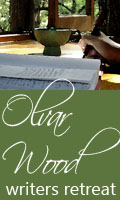
| current issue |
| archives |
| submissions |
| about us |
| contact us |
| short story competition |
sponsored by

Wild & Woolley: A Publishing Memoir by Michael Wilding reviewed by Inga Simpson |
|
Publishing was a political undertaking in those days (“Publishing is subterfuge”); Australia was coming out of the Vietnam War, the Liberal Country Party had finally been ousted by the Whitlam’s Labor, and things were abuzz with anti-war protests, beat culture, and feminism. Wild & Woolley set out to be alternative, to work outside the mainstream on all levels. There’s more than a touch of the underground, and the collective, to their undertakings. Wild & Woolley offers an inside account of the Australian literary scene – particularly Sydney – during the 1970s and 1980s. As Wilding admits, publishing was an inroad into a way of life – a literary life. He captures Sydney’s close-knit and bohemian scene, full of colourful characters and delightful anecdotes:
There are perhaps a few too many names dropped, but then these are important names in recent literary history and there are plenty who will delight in their mention and the memories. For me, Wilding’s friendship with Christina Stead was the most unexpected and intriguing:
Wilding has considerable skill with the sentence and a deft touch with dry humour. “Of course, there’s no such thing as a free book,” has stayed with me. Wilding proudly took home a copy of every book they published, building an impressive home library – only to receive a considerable bill many years later. For those of us who missed out on these good times for writers and publishing, there is much to enjoy – and envy. There’s a nostalgia here, but it’s a clear-sighted account nonetheless. To my mind, in these bleak times for publishing, there is plenty to be nostalgic about. Wild & Woolley covers all aspects of the publishing trade: writing, printing, design, distribution, bookstores, and there’s a lovely section on the pleasures of warehouses. It was, for a while, glory days for publishing and writing, generating an optimism and sense of community missing today. I was struck by the remarkable efforts and generosity of individuals and the coherence of vision for Australian literature. Wild & Woolley ran on a vision, and hard, unpaid work. Profit was never the motivation (which was just as well). There were some cynical choices, gauging their alternative audience and reputation, to subsidise literary works. But many now well-established writers, local and international, were first introduced in Australia by Wild & Woolley. Australian literary criticism was also well supported, through the Sydney Association. Wild & Woolley offers wonderful insights into the economics of small-press publishing and its decline. And shifts in the modus operandi of the Literature Board of the Australia Council. Wild & Woolley received good support for a time:
The new formulae meant it was advantageous for small presses like Wild & Woolley to print 5000 copies although they knew they would never sell them. Wilding later explained this to the Board (which he served on), and the formula was changed. There’s a pleasing story, though, of a couple of happy writers who were suitably delighted when boxes of their out of print books were returned thirty years later: “We never pulped them. We kept everything.” Wilding provides a clear account, too, of the progressive legislative changes in the industry and their impact on small presses, publishing, and writing. All good things, of course, come to an end. Wilding left Wild & Woolley in 1980, and due to an injury that she suffered early in 2010, Woolley was unable to work; the press has been in limbo since then. Wilding, it seems, couldn’t stay away from the business; he is now involved in a new publishing venture: Press On. Wild & Woolley is an entertaining and valuable record of times gone by: a fascinating and important period in Australia’s publishing and literary history. It is appropriate that this book should be published by Giramondo, the small, independent university-linked literary press responsible for many fine titles reaching hungry readers over recent years. Wild & Woolley is the first in a series of short form, short print run books. It is a good looking book, too. A great gift for anyone interested in writing and publishing. Wild & Woolley: A Publishing Memoir About the Author
|
 This publishing adventure story, from the prolific Michael Wilding, is a delight. In 1973, Wilding, originally from West Midland, and Pat Woolley, from California, set up Wild & Woolley, a small publishing firm dedicated to producing and importing new style fiction and poetry.
This publishing adventure story, from the prolific Michael Wilding, is a delight. In 1973, Wilding, originally from West Midland, and Pat Woolley, from California, set up Wild & Woolley, a small publishing firm dedicated to producing and importing new style fiction and poetry. 